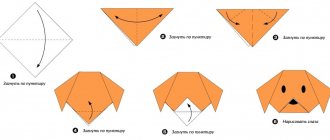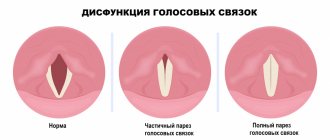The first mentions of children with mental disabilities appeared in the times of Ancient Greece.
Aristotle, who studied human development, was already able to detect problems in the mental health of the child. But, unfortunately, due to the lack of methods to combat such pathologies, such children became outcasts. Subsequently, when effective methods of treatment replaced primitive medicine, the question of helping such children became one of the most pressing. Thus, the science of defectology was born, the subject of study of which was “abnormal” children, in particular the patterns of their development, features of upbringing and training, as well as issues of introducing them to work and adaptation to society.
Subject of study and main tasks of defectology
Defectology branches into separate branches
:
- Deaf pedagogy
(studies problems in the education and upbringing of children with poor hearing); - Typhlopedagogy
(method of teaching children with poor vision); - oligophrenopedagogy
(education and upbringing of children with intellectual disabilities); - speech therapy (study and correction of poorly developed speech abilities);
- Deaf-typhlopedagogy (upbringing and education of deaf-blind people);
- Amblyology (socialization of people with poor vision).
The subject of defectology study is children with various disabilities. They can be expressed both physically and mentally. Science explores the nature of the origin of deficiencies, methods of training, development and upbringing of abnormal children.
Objectives and goals of the discipline:
- identifying the causes and nature of the defect;
- definition of social and mental development;
- setting goals to overcome the deviation, if possible;
- appointment of special education and training for a specific child with disabilities.
The tasks and goals of defectology are closely intertwined with correctional pedagogy. But the difference is that defectology has its own structure. It is based on the identification of special systems and methods of education and upbringing.
Primary defects
Defectologists have focused on the interaction of primary defects and secondary signs of developmental disorders. We have already looked at examples where a primary defect causes symptoms. Secondary symptoms, however, can also spontaneously influence the primary defect. However, the secondary defect (language inhibition) is transformed with increasingly adequate use of the possibilities of obedient reading (endless listening).
Other uses. Impairment of mechanical memory in mentally retarded children is the main sign of an intellectual defect, since it is associated with a biologically determined incompleteness of the stop function of the cerebral cortex. It can be compensated to some extent by correcting such secondary signs of mental disability as deterioration of logical memory.
It should be emphasized that positive educational influence is subject to secondary difficulties in the development of abnormal children, since their appearance is mainly associated with intermediate factors of mental development. If, when teaching children with one or another defect in the early stages of their development, the peculiarities and difficulties of mastering a non-social culture caused by the primary defect are not taken into account, then secondary inequality arises in the child’s development. In such conditions, as noted by L.S. Vigotsky, divergence occurs, that is, divergence of biological and social plans of development, while the development of a normal child is characterized precisely by the cohesion of these two plans.
This lack of independence of biological pre-thought development and the influence of the environment on an abnormal child, which does not affect the specifics, while traditionally designed for a normal psychophysiological organization, can be taken into account for drugs. Vigotsky, the main specific figure for the mental development of abnormal children.
The sooner special conditions are created for the upbringing of an abnormal child, the more optimally the peculiarity of his development, caused primarily by the nuclear characteristics of the defect, is taken into account, the more effectively the occurrence of secondary diseases can be prevented or somehow smoothed out.
It is necessary to take into account an important pattern of abnormal development: The further the secondary disorder is from the main cause (the primary defect caused by the disease factor), the more it is indirectly related to the primary defect, the easier it is to correct it with the help of pedagogical means of influence.
For example, it is more important to correct the phonetic and collocation errors of a deaf child as these are most closely related to the primary defect, since misinterpretation in this case depends on the inability of individuals to maintain auditory control over their own speech. Other deficiencies in the language development of deaf people (limited vocabulary, incorrect grammatical structure of language and understanding of the semantic meanings of words) may be more successfully addressed in appropriate educational settings, since they are more indirectly related to primary dephnitomers. To correct them, one can largely use the preserved zoology of the deaf, in particular, their understanding of writing and significant capabilities in carrying out active mental activity.
Basics
Defectology is based on correctional and pedagogical principles:
- the focus of the pedagogical process on each child;
- integrity and consistency;
- humane attitude of teachers towards children with abnormalities;
- eliminating excessive demands on a lagging child;
- positive orientation of the learning and education process;
- involvement of the social environment for the child’s adaptation to society;
- exploring the child’s capabilities and providing tasks within their capabilities.
Expert opinion
Margarita Sergeevna S.
Speech pathologist and speech pathologist with 15 years of experience working in various speech correction centers with children of different ages.
In addition to the above, the activities of science include the development of new methods and techniques aimed at helping children with various anomalies.
Historical reference
Defectology as a science refers to the pedagogical practice of scientific knowledge of children from different age groups who have been identified with deviations in physical or mental development, as a result of which they are deprived of the opportunity to study and be brought up in normal conditions determined by the existing culture.
The term “defectology” itself comes from the merger of two words: defectus (translated from Latin - “absence” or “flaw”) and logos (translated from Greek λόγος - “teaching, word, thought”). Thus, the concept of defectology reflects the entire essence of the doctrine and is used as the title name for the branch of theoretical and practical systematic training and education of persons who have been diagnosed with deficiencies (defects) of physical or mental development.
In countries near and far abroad, this concept means a “special educational program” or “therapeutic pedagogical activity” aimed at the education of all children who are distinguished from ordinary children by the presence of developmental defects.
The history of defectology dates back to the 20th century. This industry began to actively develop from the moment the government took responsibility for mentally retarded children and adolescents. The year 1917 became decisive for this direction of scientific knowledge, when the state decided the main issue of guardianship of such children by starting the construction of several special institutions at once.
We recommend: Autism is
Outstanding personalities who made a huge contribution to the development of the science of defectology, and were also its active figures, are:
- I.V. Malyarevsky, founder of Russia’s first private children’s medical and educational institution with the goal of providing assistance to children predisposed to nervous and mental illnesses.
- L.S. Vygotsky, Russian psychologist, teacher-defectologist, experimenter, author of the book “Fundamentals of Defectology” (1934). The founder of correctional pedagogy for abnormal children, the head of a special scientific and practical institute, which is still in operation.
- ON THE. Vlasova, professor and candidate of pedagogical sciences, working in the areas of defectology and speech therapy, who was the first to use speech therapy rhythms for classes with children who stutter.
- E.K. Gracheva, Russia’s first teacher-defectologist, carried out her activities in shelters for mentally retarded teenagers and children.
- V.P. Kashchenko, the head of a unique institution that dealt with the issues of pedagogical adaptation to society of children 4-16 years old with developmental pathologies.
- G.I. Rossolimo, an outstanding psychiatrist and part-time neurologist who studied the development of children's psyche and physical health.
At the moment, many preschool institutions, schools and health-improving complexes have been opened in Russia, the main activity of which is the organization and implementation of the educational process, training, rehabilitation of children with special needs, as well as their preparation for social relationships and adaptation in the immediate environment.
Connections with other sciences
Defectology is intertwined with special psychology
, pedagogy and philosophy. In addition to these disciplines, there is a direct connection with medicine. Let's depict it schematically:
The connections between the sciences are varied and cover a wide range of different fields.
What is a defectologist and what does he treat?
A defectologist is a broad-based specialist. He is involved in the education and development of children with varying degrees of disabilities. The rules can be viewed here. The main goal is the child’s adaptation in the social sphere, assistance in developing abilities and rehabilitation.
Persons requiring consultation with a defectologist:
- deaf. This also includes children who are hard of hearing;
- blind or with poor vision;
- children with musculoskeletal disorders;
- mentally retarded;
- with severe speech impairments (dyslalia, dysarthria, dysphonia, rhinolalia, stuttering
, alalia, aphasia, dyslexia
)
; - with mental retardation;
- with autism spectrum disorder;
- with severe multiple developmental disorders.
Important: seeking help from a speech pathologist is a mandatory step to help a child with the listed disorders.
Work in kindergarten
A specialist examines each baby. Determines the level of social, cognitive and speech development. In parallel with the research, training work is carried out. It is needed to compensate and correct detected violations. A defectologist is one of the first to examine children. He studies medical records to identify the nature of pathologies. After his conclusion, speech therapists, psychologists and other doctors begin the examination.
One of the main goals of a defectologist is to increase the child’s cognitive activity. In combination with the skill of cognition, the ability to think develops, the imagination is trained, memory and correct perception of the surrounding world are formed. Skills are developed in a playful way. The specialist involves parents to help the child. Kindergarten teachers should also take part in the process.
Important:
not all children need a visit to the speech pathologist’s office Only those with mental or physical abnormalities.
What goals does this area of scientific knowledge pursue?
Defectology, as a science that studies the individual traits and special needs of children with pathologies, sets itself the task of identifying the nature of the detected defect, determining its cause-and-effect relationships and impact on mental functions, studying the patterns of development, learning, and introducing children with disabilities to social and pedagogical norms modern life.
Science is also responsible for generalizing, systematizing and implementing the results obtained into practice to improve activities. We recommend: Hyperactivity in a child
Various scientific methods of defectology are used to objectively study physical disabilities or mental defects in children. In this way, a scientific approach is implemented that determines the main tasks of defectology, which include:
- Organization of educational and training processes within the framework of educational programs of preschool institutions and schools for children with special needs.
- Personality formation with limited life opportunities.
- Formation of psychological and pedagogical classifications of categories of patients with various disorders.
- Development of a differentiated approach to the processes of education and training in conditions of limited opportunities.
- Correction of deficiencies in perception and cognitive skills.
- Justification of the methods used in teaching and the principles of organizing sets of special exercises that make it possible to create optimal conditions for education and training.
- Identification of the main goals, directions, objectives, as well as the development of concepts and systems for persons in need of special education.
- Generalizing the experience gained, introducing the results of new research and developing more advanced educational techniques and programs.
- Systematization of theoretical and practical data to create standards, textbooks and methodological literature for specialists working with patients with disabilities.
- Forecasting prospects in the field of special education.
- Research and implementation of psychological and pedagogical mechanisms, methods and means that allow for the prevention of disorders and pathologies.
- Finding ways and means to improve the lives of people with developmental anomalies in order to create comfortable conditions for them in modern society.
All these and other tasks of defectology allow us to carry out the main activity of the scientific direction - to provide special assistance to people with special needs, in order to open up opportunities for them to take an active part in social activities and live a rich life.

![Hard and soft sound [d]](https://ls-kstovo.ru/wp-content/uploads/tverdyj-i-myagkij-zvuk-d3-330x140.jpg)







